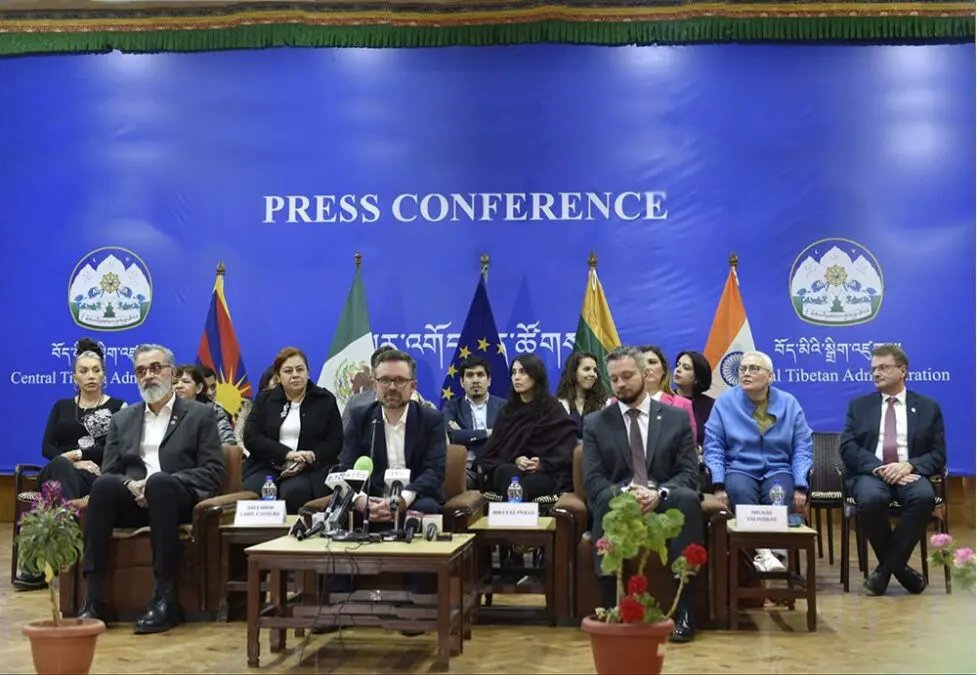Representative ImageBy — Shyamal Sinha
Tibetans have even fewer civil and political rights than Chinese people also ruled by the Chinese Communist Party.
The Chinese government enforces its control on Tibet through the threat and use of arbitrary detentions and punishments, at times including severe violence. Any act deemed to threaten its rule can be made a criminal offence.
Amid rising criticism of China over its human rights abuses in Tibet, the Tibet Bureau Geneva has said that Switzerland needs to take a stronger stance on Tibet and include the concerns of Tibetans and Uyghurs in its Foreign Policy Strategy on China 2021-24.
Uygurs or Uigurs, are a Turkic-speaking minority ethnic group originating from and culturally affiliated with the general region of Central and East Asia. The Uyghurs are recognized as native to the Xinjiang Uyghur Autonomous Region in Northwest China .
According to a report by Tibet Bureau Geneva, Switzerland’s State Secretary Krystyna Marty held political dialogue via videoconference with China’s Vice Minister of Foreign Affairs Qin Gang on November 9 focusing on economic relations, human rights situation in China as well as COVID-19 pandemic situation in a bid to foster “sustainable relations” between the two countries as noted in the press release.
During the discussions, Switzerland tabled its concerns about the “lack of respect for human rights in China”, especially the manner of treatment of Tibetans by the Chinese authorities.
The discussions were held in the backdrop of China-based Swiss Ambassador Bernardino Regazzoni’s visit to Tibet between September 7 and 11, which was the first official Swiss visit since 2017.
The Swiss Federal Department of Foreign Affairs said in its statement that the Ambassador along with other 10 diplomatic missions visited Lhasa and Shigatse wherein they addressed issues such as human rights situation with the local government.
Expressing concern over the human rights situation in Tibet, the Foreign Affairs Department had assured that “the free access of the UN High Commissioner for Human Rights to Tibet and the protection of Tibetan human rights defenders remain core demands of Switzerland”, the Central Tibetan Administration said.
The Tibet Bureau Geneva has welcomed Switzerland’s move to include the promotion of human rights as a key component of the political dialogue and for raising the human rights situation in Tibet issue.
Switzerland is one of the first countries granting asylum to Tibetans fleeing China’s brutal annexation of Tibet. Switzerland has also been a supporter of dialogue between the envoys of His Holiness the Dalai Lama and China.
The Tibet Bureau Geneva has, however, opined that Switzerland needs to take a stronger stance on Tibet and include the concerns of Tibetans and Uyghurs in its Foreign Policy Strategy on China 2021-2024. Further, Switzerland needs to consider the calls against China hosting the Winter Olympic Games of 2022, dubbed as “Genocide Games” by Human Rights activists.
Despite reassurances by the authorities of non-implementation against Tibetans, Tibetans in Switzerland are concerned by the Swiss “secret-deal” on asylum and migration with China as under this agreement, Switzerland can invite Chinese officials to interview persons of Chinese origin to facilitate their deportation to China, the Tibet Bureau said.
It further said that this deal coincides with Switzerland’s change of stance in categorising Tibetans as “Chinese” nationals and the rejection of around 300 asylum applications by Tibetans.
Meanwhile, these asylum-seekers are also facing difficulties in their “hardship-case” applications despite submitting identity cards issued by the Central Tibetan Administration proving their ethnicity, Tibet Bureau added.
Since its forceful settlement of Tibet, the Chinese Communist Party has relentlessly pushed for the persecution of religion, especially Tibetan Buddhism. By employing its state machinery, it has executed campaign after campaign to meet its objective, each more brutal and oppressive than the last.
Tibetan Buddhism spread outside of Tibet primarily due to the influence of the Mongol Yuan dynasty (1271–1368), founded by Kublai Khan, which ruled China, Mongolia and parts of Siberia. In the modern era it has spread outside of Asia due to the efforts of the Tibetan diaspora (1959 onwards).
In the recent past, there have been reports of incidents of surveillance and censorship on Tibetans living in Switzerland by the Chinese authorities. This has been the case in New York and Sweden as well.
source – ANI



